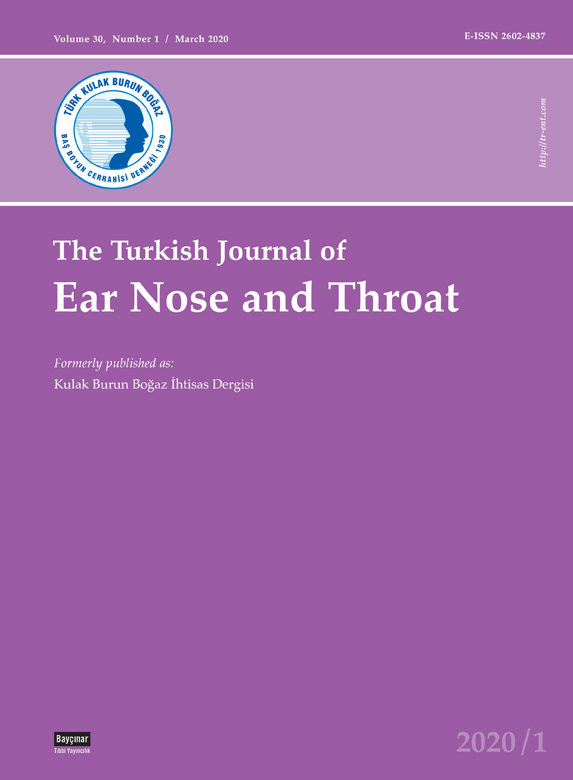
The Turkish Journal of Ear Nose and Throat
Yazarlar: Tarık ŞAPÇI, Melih Güven GÜVENÇ, Muhammed Fatih EVCİMİK
Konular:-
Anahtar Kelimeler:Complications,Inferior turbinate,Patient recovery,Radiofrequency ablation,Radiofrequency.
Özet: Radiofrequency ablation (RFA) is a technique which causes a reduction in tissue amount using ablation by high-frequency current. Beside other surgical tools, RFA has become quite popular over the past decade. Hypertrophy of the inferior turbinate is a common cause of chronic nasal obstruction. There is no agreement on how to deal with this problem. An ideal procedure for turbinate reduction should be performed with minimal discomfort or adverse reactions and should preserve the physiologic function of the turbinate, such as regulation of humidification and temperature of inspired air. All the current techniques have potential short and long-term complications such as bleeding and atrophic rhinitis. No technique is perfect, and the main goal of turbinate surgery should be the preservation of mucosal surfaces with reduction of submucosal tissue. The variety of surgical techniques available indicates the lack of consensus on the optimal technique. Radiofrequency tissue reduction is a surgical procedure that uses radiofrequency heating to induce submucosal tissue destruction, leading to the reduction of tissue volume. This energy induces ion agitation within the tissue, which increases the local temperature and causes a thermal lesion that should occur in the deep mucosa without damaging the surface. The healing process secondarily induces fibrosis with wound contraction, leading to tissue volume reduction. Radiofrequency ablation is an efficient, easily applicable technique, which does not lead to serious complications in the treatment of the nasal obstruction caused by inferior turbinate hypertrophy.